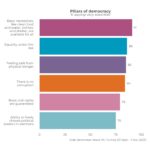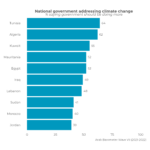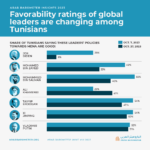The “Arab Spring” of 2010-2011 demonstrated that authoritarian collapse does not guarantee a transition to democracy. After revolutions, newly elected governments face a dilemma: they must rely on existing security institutions to restore order and stability, but they also must reform these potentially counterrevolutionary forces. In addition, these governments are now responsible to newly enfranchised populations. This paper offers a tradeoff hypothesis to explain the success or failure of transitional reforms, and points to elites’ framing of public debates as a primary factor leading public opinion, which either demands or neglects difficult reforms during moments of transition. The theory is tested with an original survey of Tunisian adults conducted in January 2017. An embedded vignette experiment asks respondents to adjudicate between investments in security sector reform versus economic or political reform, the exact types of tradeoffs countries face during the transition from authoritarian rule. An additional treatment tests whether citizens perceive a tradeoff between providing national security – i.e. against terrorist threats – and reforming the military to protect civil liberties, a question that has been debated since Tunisia’s 2011 uprising. I find that public opinion can be swayed by the framing of tradeoffs. Economic development is strongly preferred over other reforms. This finding has important implications for the success of both security sector reform and democratic consolidation.
Visit External SiteTopics
- Charity2
- Corruption103
- COVID-1969
- Democracy24
- Discrimination12
- Economy215
- Education47
- Environment25
- Extremism19
- Freedoms41
- Gender Issues141
- Governance241
- Health40
- International Relations169
- Labor Market31
- Media30
- Migration54
- Political Institutions203
- Political Participation31
- Political Systems51
- Refugees6
- Religion118
- Security25
- Social Justice43
- Wellbeing2
- Youth72


